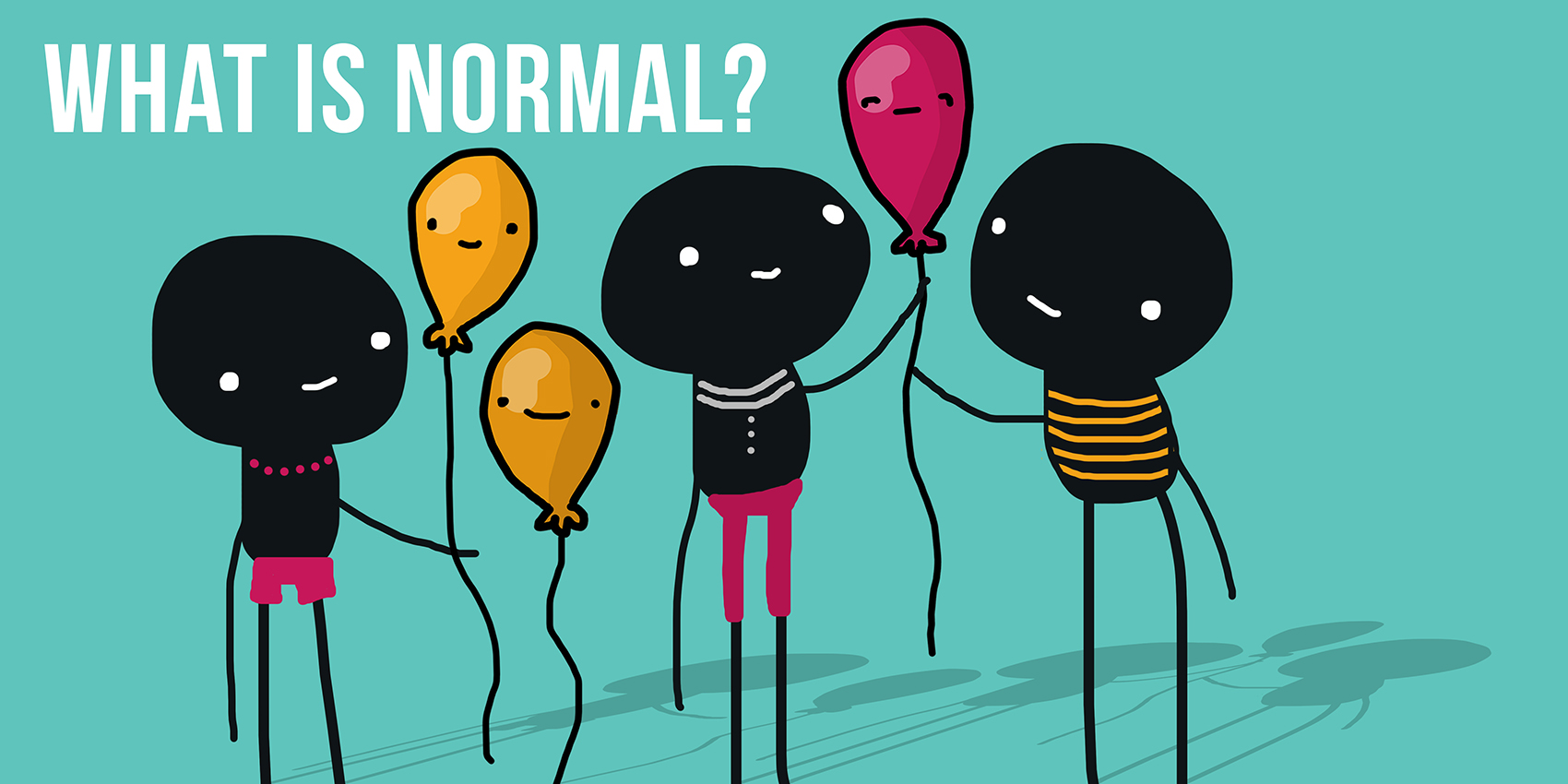23 Feb What is normal?

Still wondering just what is normal when it comes to mental health?
Well, that’s normal! Wondering Am I Normal? is something all teens ponder (meaning think about). Yes, we all ask this. (Usually in our heads or with a close friend; we rarely shout if from the street corner, because that would elicit a confident “No” from onlookers.) Young teens to seventy-five year olds ask this question, although some care more about it than others.
But as you read about mental health you may be wondering to yourself, Am I normal when it comes to mental health? Is what I am experiencing a normal part of growing up or is what I am experiencing different in a way that requires some special care?
To think about whether or not you may need some help, consider these examples:
You have a bad day at school and come home to cuddle your doggie and then you feel better.
You have a bad day at school and come home to repeatedly and forcefully kick your doggie and then you feel better.
One of those responses is healthy, beneficial and not at all damaging to anyone. The other is not healthy nor beneficial and would certainly damage the doggie. If you are likely to do the second one, then you would qualify as needing some help managing your emotions and expressing them in a more beneficial way.
You see an Insta of a party to which you were not invited. That’s a bummer and it makes you a bit upset. You end up asking one of your friends about it, and she says it was a totally spur of the moment thing and also pretty lame. You are over it in a couple of days.
You see an Insta of a party to which you were not invited. You stay in your room all weekend and when you return to school you have trouble concentrating on work and avoid the people who hurt you. You spend a month unable to shake the rejection.
Feeling overwhelmed by emotions and not able to adequately deal with them over time is a sign that you may need help. Social rejection is really hurtful and it takes some time to really manage the feelings associated with it. But to still feel intense hurt or anger or pain after a week or two usually means you need help. A huge part of mental health is being able to manage emotions. When your emotions hinder (meaning to diminish or hurt) your ability to concentrate, or do basic life tasks, you really should consider talking to someone. If your emotions are leading you to thoughts of self-harm, suicide or to hurt another person, definitely seek help!
The ability to deal with life’s bumps is different for everybody and may even change over time. But if your emotions are causing a major distortion in your life on a regular basis, then you may be experiencing more than just the average mood swings of life. At some point, if things are feeling overwhelming and you are worried that what you are experiencing is outside the realm of normal everyday frustrations, you may want to see someone for help.
Many people want to seek help but they worry about what others will think. Well, that is a thing of the past – hopefully! Read on to learn about the stigma and how we can all work to change the idea of mental illness from being scary and dangerous to being what it is, an illness that needs attention.




WLKHS2108
Posted at 02:22h, 05 March‘Normal’ means being something that a majority of the people are. Whether it is doing what they do or wearing what they wear or acting how they act. I think not being normal is good because if everyone was the same it would be boring.